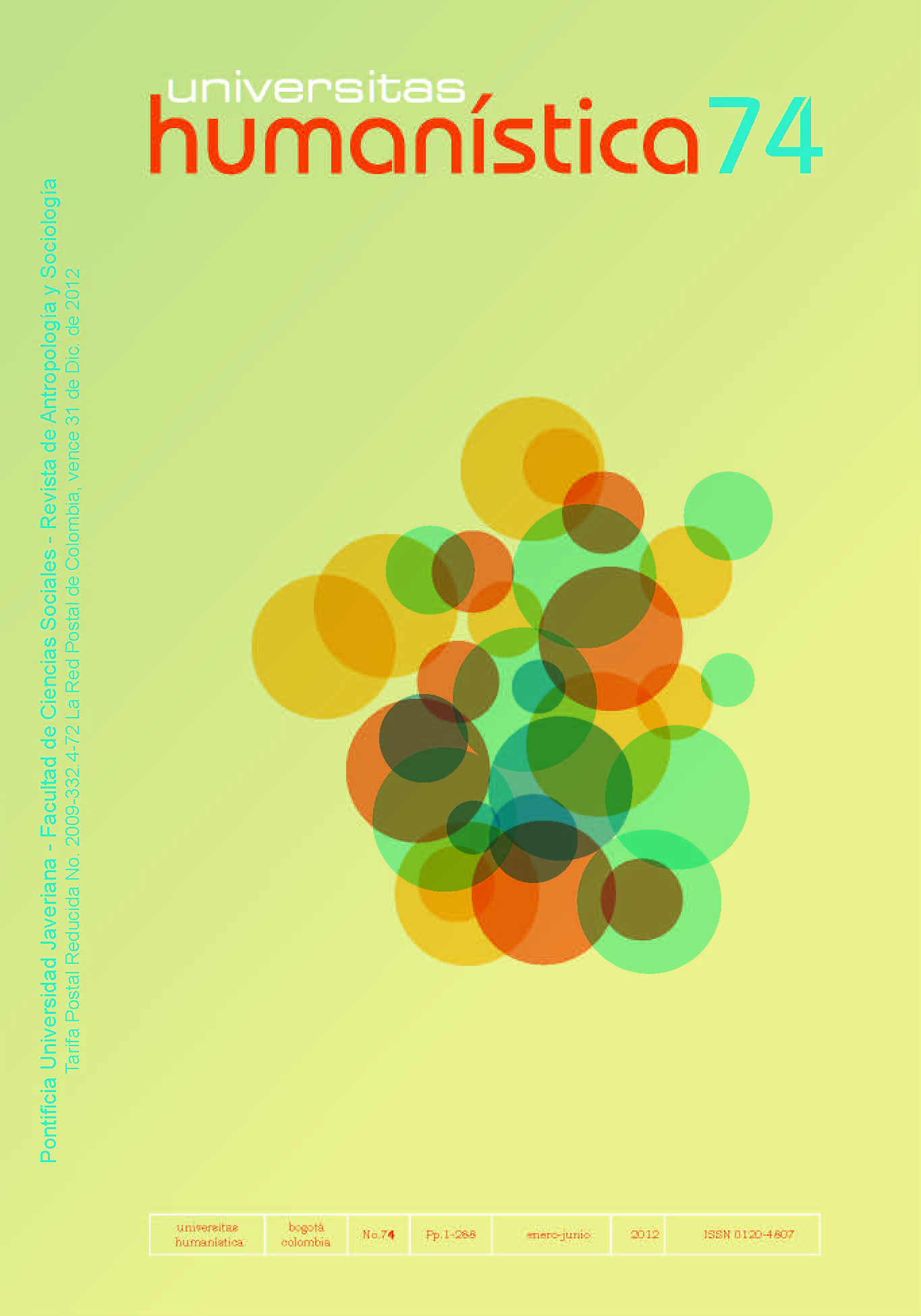Resumen
En el presente artículo pretendo poner en discusión la idea según la cual fenómenos relativos a lo que en antropología se asocia con la noción de cultura, son importantes para comprender algunas razones que le dan lugar a la emigración internacional. A propósito empleo tres conceptos: identidad, estructuras locales del deseo y geografías imaginarias, a través de los cuales pretendo ofrecer un complemento comprensivo a otras aproximaciones investigativas sobre la migración centradas en el estudio de causas económicas o macro-sociológicas. El cuarto aporte que busco ofrecer versa sobre el papel de la etnografía en tres de sus versiones: experiencial, densa y mutilocal, como un medio idóneo para conocer la migración internacional. Esta reflexión se basa en el trabajo de investigación adelantado por cerca de cinco años sobre la migración internacional en la ciudad de Pereira (y su área metropolitana), reconocida en Colombia por sus altas cifras de emigración al extranjero. 
La revista Universitas Humanística se encuentra registrada bajo la licencia Creative Commons Reconocimiento 4.0 Internacional. Por lo tanto, esta obra se puede reproducir, distribuir y comunicar públicamente en formato digital, siempre que se reconozca el nombre de los autores y a la Pontificia Universidad Javeriana. Se permite citar, adaptar, transformar, autoarchivar, republicar y crear a partir del material, para cualquier finalidad (incluso comercial), siempre que se reconozca adecuadamente la autoría, se proporcione un enlace a la obra original y se indique si se han realizado cambios. La Pontificia Universidad Javeriana no retiene los derechos sobre las obras publicadas y los contenidos son responsabilidad exclusiva de los autores, quienes conservan sus derechos morales, intelectuales, de privacidad y publicidad.
El aval sobre la intervención de la obra (revisión, corrección de estilo, traducción, diagramación) y su posterior divulgación se otorga mediante una licencia de uso y no a través de una cesión de derechos, lo que representa que la revista y la Pontificia Universidad Javeriana se eximen de cualquier responsabilidad que se pueda derivar de una mala práctica ética por parte de los autores. En consecuencia de la protección brindada por la licencia de uso, la revista no se encuentra en la obligación de publicar retractaciones o modificar la información ya publicada, a no ser que la errata surja del proceso de gestión editorial. La publicación de contenidos en esta revista no representa regalías para los contribuyentes.


